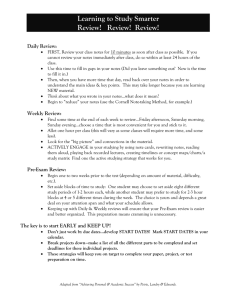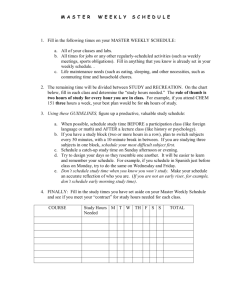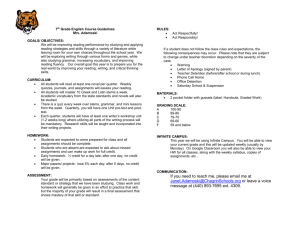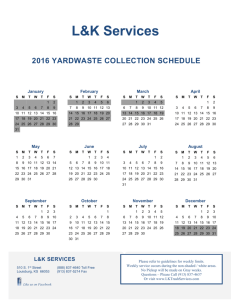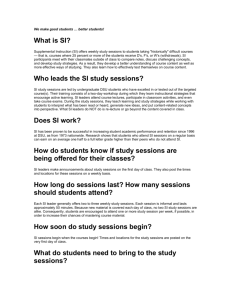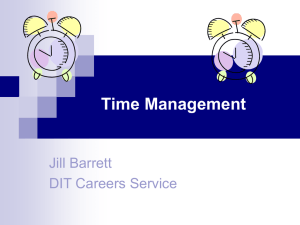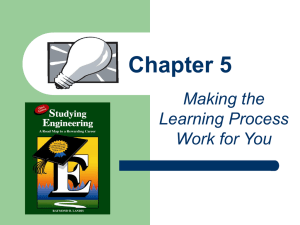Time Management
advertisement
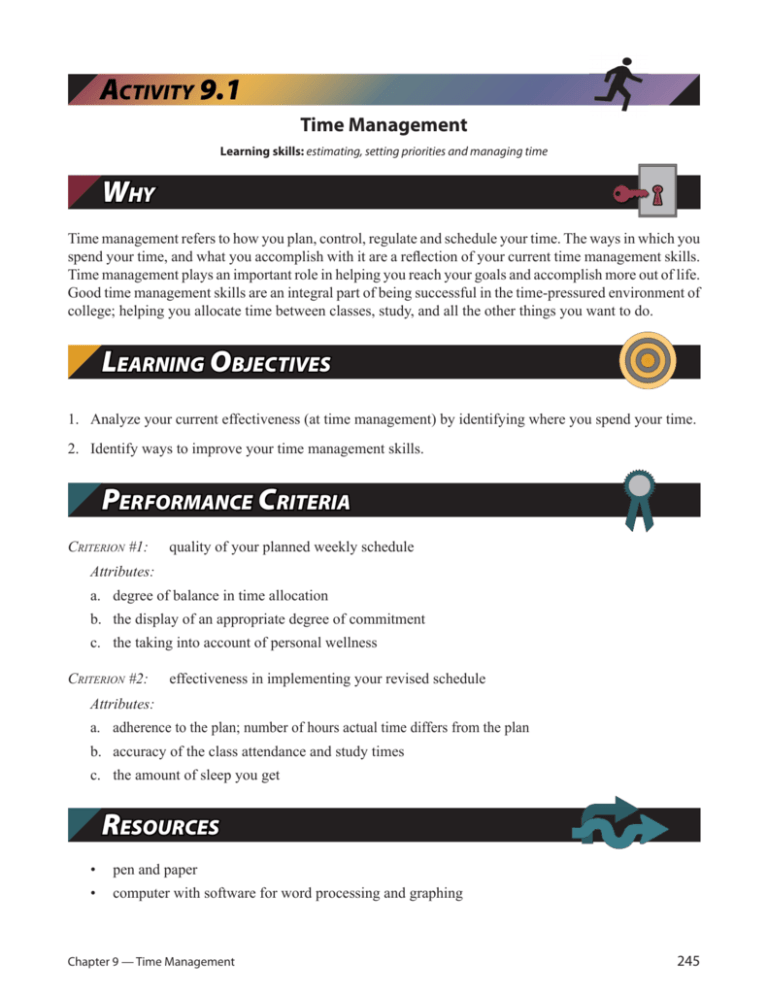
Activity 9.1 Time Management Learning skills: estimating, setting priorities and managing time Why Time management refers to how you plan, control, regulate and schedule your time. The ways in which you spend your time, and what you accomplish with it are a reflection of your current time management skills. Time management plays an important role in helping you reach your goals and accomplish more out of life. Good time management skills are an integral part of being successful in the time-pressured environment of college; helping you allocate time between classes, study, and all the other things you want to do. Learning Objectives 1. Analyze your current effectiveness (at time management) by identifying where you spend your time. 2. Identify ways to improve your time management skills. Performance Criteria Criterion #1: quality of your planned weekly schedule Attributes: a. degree of balance in time allocation b. the display of an appropriate degree of commitment c. the taking into account of personal wellness Criterion #2: effectiveness in implementing your revised schedule Attributes: a. adherence to the plan; number of hours actual time differs from the plan b. accuracy of the class attendance and study times c. the amount of sleep you get Resources • pen and paper • computer with software for word processing and graphing Chapter 9 — Time Management 245 Project 1. The first step in time management is to inventory how you currently spend your time. Create a sevencolumn table with each day of the week listed in the column headings across the top of a page. List the hours of the day down the page as row labels. Individually inventory and block the times for each day of the week in the following manner. a. First, fill in your “committed” times. This includes things such as your classes, work commitments, meal times, sleep, travel time (for commuters), and organized sports or activities. b. Next, block in the times you presently use for studying (which is really commitment to your own success). Note: A guideline for out of class study in college is that for every hour spent in the classroom, you should spend 2-3 hours studying out of the classroom. Do you feel you are currently allocating the appropriate amount of time for study? c. Fill in the rest of the schedule with how you usually spend your time. You may be specific or you may use general terms such as “social” or “recreation.” 2. Analyze the information in your table in terms of weekly totals. Categorize or group your time spent into major areas, e.g., basic needs (sleeping and eating), mental, social, physical, and spiritual needs. Sum the hours you spend each day in these categories to arrive at a weekly total. Optional: Use a computer with graphing software to construct a pie chart of this data. 3. Create a new table which shows the hours per week you currently spend in the main areas common to most people’s everyday lives. 4. Create a revised weekly schedule for how you plan to spend your time next week (after working through this activity). Include a prioritized daily task list with anticipated time requirements. What changes if any will you make to your study habits? 246 Foundations of Learning Assessment How effective is the time you spend studying? Are you productive with this time? What are two strengths, two areas for improvement, and two insights about your effective use of study time? Strengths: • • Areas for improvement: • • Insights: • • 2. What are the top three things you would change in your current schedule to make the greatest improvement in your performance as a college student? • • • Chapter 9 — Time Management 247 Exercises 1. Monitor your performance for the next two weeks against the modified timetable you created for this activity. In a one or two‑page paper, assess the accuracy of your estimations and your diligence at following the schedule. Discuss adjustments you need to make. 2. Use a blank monthly calendar to identify the dates associated with exams, important assignments and tasks for all of your classes. Another way to present this information, with more space for writing, is to allow several lines on a piece of paper for each week of the semester. This allows you to identify the due dates of assignments for each course you are presently taking. 3. Write a one or two‑page paper discussing the relationship between procrastination and time management. Identify some ideas for overcoming procrastination. 248 Foundations of Learning
